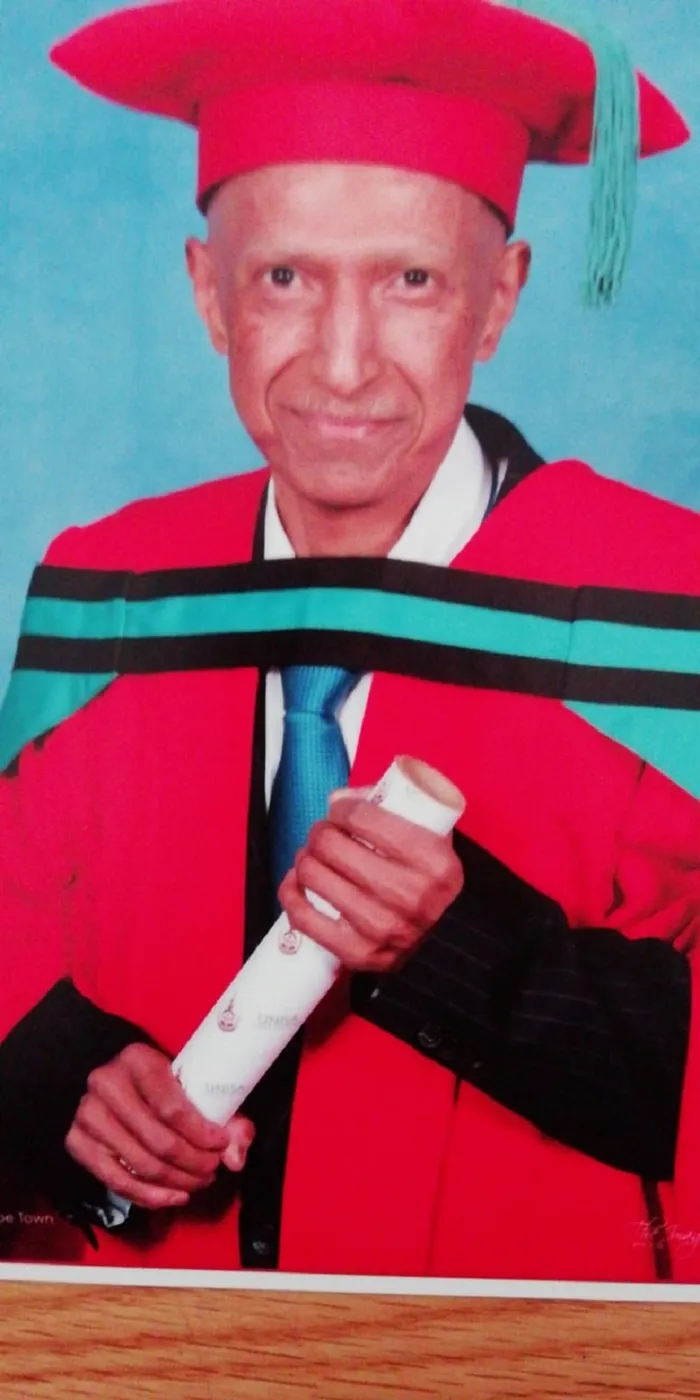Method to improve maths performance

Dr Shaik Mohammad Hassan
Dr Shaik Mohammad Hassan, Wynberg
I received my PhD in educational management through Unisa in November last year, and I would like to introduce a powerful method that can be used at educational institutions to improve performance in subjects like mathematics.
Lesson study is an intervention method that started in Japan and is a classroom-based and teacher-driven activity based on action research. It is a process that focuses on planning, teaching, observing, revising, reflecting and re-teaching lessons in a classroom context. It not only improves a student’s performance but also increases the teacher’s instructional leadership and performance.
The process of lesson study is briefly as follows:
Phase 1. Set a goal and plan: a few lecturers come together and discuss an area that has for a long time been a problem area for students. For example, say the chain rule in mathematics has presented a problem for students, the team collaboratively design a lesson plan to address this problem. For example, in my study, myself and my team focused on perimeters and areas of irregular shapes because the team realised that many students struggle with this part of mathematics.
Phase 2. Teach and observe: Next, one member of the team teaches the lesson that was designed by the team and the other team members record evidence of student learning by closely observing how the students try to solve the problem, the dialogue between them and how they behave.
Phase 3. Debrief and reflect: After the lesson is delivered, the team members get together to debrief and reflect by sharing the data gathered from the observations and use this information in designing the next revised lesson in the second cycle.
Phase 4. Revise the lesson and design a revised research lesson: Reflections from the debriefing session are incorporated into a revised research lesson.
Phase 5. Teach the revised research lesson and observe: The revised lesson is delivered by a different lecturer to a different group of students and again observed by the lecturers not delivering the lesson, by recording evidence on what students do.
Phase 6. Debrief and reflect on the revised lesson: The team meets to reflect and debrief on the revised lesson by discussing the students’ work, and the research lesson is revised again.
The idea is to have a minimum of three cycles and a maximum of four so that a perfected lesson plan can be designed to address the problem area identified in phase one.
Although all the phases of the lesson study are important and powerful, by far the most powerful phase is the observation phase as this phase highlights the misconceptions and errors in student’s thinking. One of the reasons why students struggle in certain areas of mathematics is because of misconceptions and errors in thinking.
When observation is done by more than one lecturer in class, who focus on a few students at a time (called case students in lesson study), much more data can be gathered by these lecturers in terms of misconceptions, and this can be fed into the next cycle of the revised lesson plan.
My study was titled “Lesson study as a management strategy to improve performance in space, shape and orientation in mathematical literacy at technical and vocational education and training colleges”. Through this study, I have also developed a model called the lesson study – participative model.
My study has revealed quite a lot of misconceptions in mathematics, but, through the collaboration with other lecturers and the manager, it has also revealed that the involvement of the manager in the lesson study- participative model improved curriculum management and sharing of experience and ideas among participants; provided guidance and support; and enhanced openness, trust and respect as well as positive relationships and confidence.
One of the major challenges is to get lecturers together to participate in a lesson-study process. Although these challenges are there, they are not insurmountable as my study and other research in lesson study have shown.
Although lesson study has been used mostly to enhance performance in mathematics and mathematics-related subjects, it has already been successfully implemented in subjects such as science and languages. It can therefore be implemented quite successfully in all other subjects from arts to medicine. It can also be implemented on all levels of education from primary schools and secondary schools to universities and colleges.
Lesson study is having great success in Japan and it is now also being implemented at schools and colleges across the UK and America. However, it has been very slow to be implemented in South Africa. In fact, my study is one of the first done at a technical and vocational education and training (TVET) college in South Africa
Lastly, I would like to sound a warning not to expect results overnight. You have to be prepared to sustain the process of lesson study for at least a year with at least three cycles to see the results and outcomes. In education you have to be prepared to work with an idea over a long period if you want to see results and not to give up.
• Dr Shaik Mohammad Hassan is acting programme head for fundamentals at False Bay TVET College. He can be contacted at mohammad.hassan@falsebay.org.za or 073 105 1858.